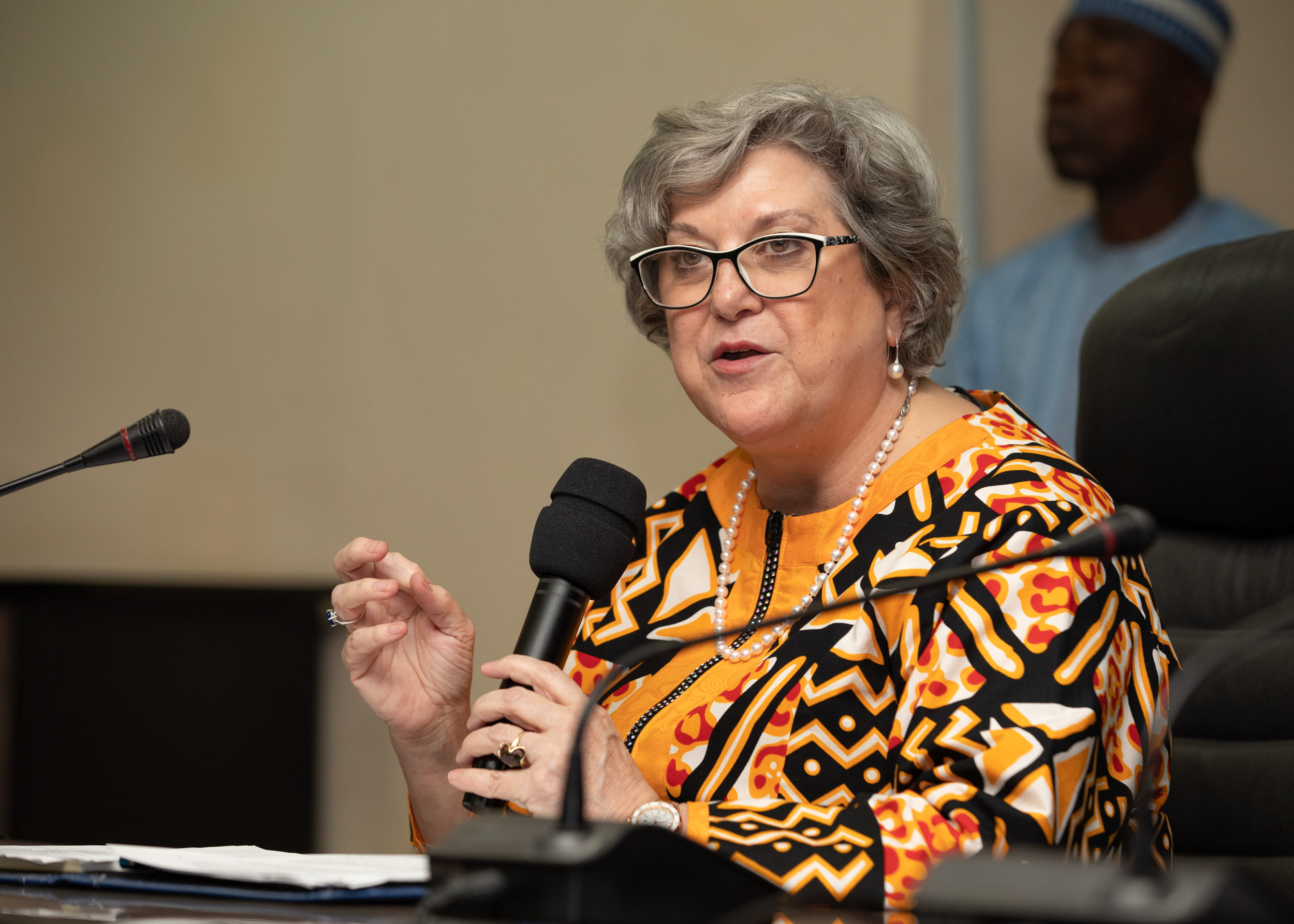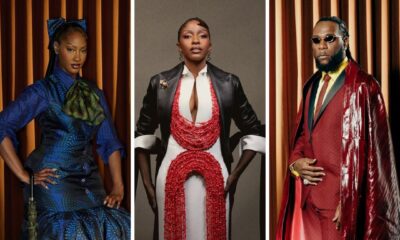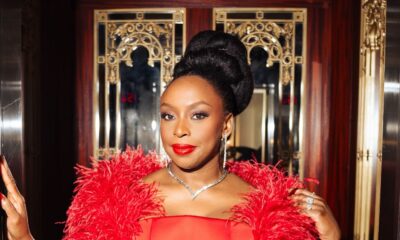Features
Read Ambassador Mary Beth Leonard’s Message to Nigerians for the 16 Days of Activism against Gender-Based Violence
The upcoming 2023 elections present a critical opportunity to include more women in leadership positions in government.

November 25 marked the beginning of the 16 Days of Activism against Gender-Based Violence, which ends on International Human Rights Day, December 10.
As the U.S. Ambassador to the Federal Republic of Nigeria, a leader, and a woman, gender equality and women’s empowerment are causes that are near and dear to me. They are also priorities for the U.S. government at home and around the world.
President Joe Biden has made gender equity and equality a cornerstone of his administration, with a first-ever national strategy to advance the rights and empowerment of women and girls. The Department of State has an office dedicated to global women’s issues and the United States globally contributes over 200 million dollars annually towards gender equity and equality programming.
In Nigeria, the U.S. Mission works to promote environments that support women’s economic success, address challenges that hold women back, and empower Nigerian women to do the same. Nations that have gender parity have greater economic and developmental growth, less conflict, and higher rates of literacy than those that do not. Fundamentally, we see it as our duty – and that of everyone who seeks a just and equitable society – to ensure women and girls have opportunities not just to participate but also to lead in all aspects of life.
As Chimamanda Ngozi Adichie said earlier this year at our International Women’s Day gala, “Women for so long have been excluded and now we are slowly righting the wrongs of history.” The U.S. Agency for International Development (USAID)’s five-year plan, initiated in 2020, highlights gender inclusion as a cross-cutting issue required to achieve Nigeria’s development objectives. The strategy prioritizes narrowing gender gaps and equalizing access to health care, agriculture, education, economic empowerment, political participation, and peacebuilding.
As Africa’s largest democracy, Nigeria sets the tone for the rest of the continent. Nigeria has done so much to advance women’s issues, including the passage of the Violence Against Persons Prohibition Act and the implementation of the National Gender Policy. However, there are still many structural inequalities that impede women’s access to economic resources and opportunities and that hinder women’s full participation in society. According to the World Economic Forum’s 2021 Global Gender Gap Index, Nigeria ranks 78th out of 156 countries in terms of economic opportunities for women.
Nigerian women’s full participation in public life is fundamental both to reducing their vulnerability to GBV and to sustaining Nigeria’s vibrant democracy. Yet, women and girls often face high barriers in electoral politics, governance, and peacebuilding. Nigeria’s representation of women in state and national government stands at only 4 percent in elective office and 16 percent in appointed positions. Women not only lack a platform but their viewpoints are also excluded from the decision-making process.
The upcoming 2023 elections present a critical opportunity to include more women in leadership positions in government. Throughout this election season, Mission Nigeria will be working with local organizations specifically to reduce violence against women in politics and during the elections. Together we will work to strengthen the capacity of women’s groups to advocate for laws and policies that provide better protections for women. In return, we hope more women will run for office, join a campaign, or serve in the next administration.
Recognizing the challenges women face, the United States will continue to support Nigerian women to realize greater productivity, economic diversification, and income equality. We will continue to push for full implementation and enforcement cooperation of laws and regulations already enacted, with emphasis on criminal accountability for those complicit in violations of the law. And we will continue our long-standing partnership with the Nigerian government, the private sector, and civil society, to each do our part to build a more gender-inclusive society, where women and girls are not only safe from gender-based violence but can reach their full potential.
***
Mary Beth Leonard is the current United States Ambassador to Nigeria and the former U.S. Representative to the African Union.























